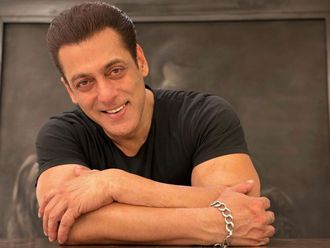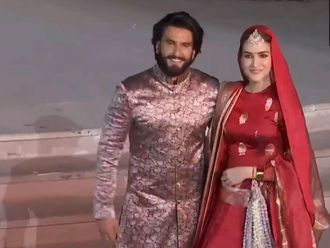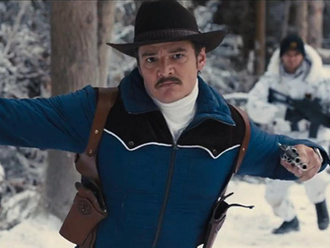
JANUARY
Non-fiction
Russia in Revolution: An Empire in Crisis 1890-1928 by Steve Smith (Oxford). The centenary of the Russian Revolution will be marked by many millions of words of analysis this year. Smith, who has written widely on both Russia and China, gets in early with an overview of the disintegration of the ramshackle tsarist empire and its replacement by a Marxist-Leninist successor state.
Istanbul: A Tale of Three Cities by Bettany Hughes (Weidenfeld). Over its 6,000-year history, Istanbul has been home to Phoenicians, Genoese, Venetians, Jews, Vikings and Azeris, and been the cornerstone of the Roman, Byzantine and Ottoman empires. Telly historian Hughes traces the history of one of the world’s greatest cities.
Age of Anger: A History of the Present by Pankaj Mishra (Allen Lane). An attempt to understand the rise of populism and the breakdown of the liberal-democratic consensus that ruled in the west for three generations after the end of the Second World War. Whatever happened to Francis Fukuyama and the end of history ?
Fiction
4 3 2 1 by Paul Auster (Faber). In the year that Auster turns 70, his densely written epic about a boy born, like him, in 1947 whose life takes four separate paths is both a history of postwar America and a meditation on fate and possibility.
Homegoing by Yaa Gyasi (Viking). Already a huge success in the US for its young author, who is being compared to Toni Morrison and James Baldwin, this impressive debut follows two sisters born in Ghana in the 18th century, one a slave and one a slaver’s wife, and their descendants in modern-day America.
The Massacre of Mankind by Stephen Baxter (Gollancz). A sequel to H.G. Wells’s alien invasion classic The War of the Worlds, set 14 years after the Martians’ defeat.
The Burrow by Franz Kafka (Penguin Classics). Michael Hofmann’s new translation brings together the posthumously published short fiction, from tiny fragments to longer pieces such as “Building the Great Wall of China”.
FEBRUARY
Non-fiction
The Last of the Tsars: Nicholas II and the Russian Revolution by Robert Service (Macmillan). More on Russia’s revolutionary year. Service provides an account of the final year of Nicholas II’s reign, his abdication in February 1917 and the murder of the tsar and his family in Yekaterinburg in July 1918.
From Bacteria to Bach and Back: The Evolution of Minds by Daniel Dennett (Allen Lane). The American philosopher tackles the subject of the origin of the conscious mind — what is human consciousness and how is it possible? The key, it seems, is culture, which enables reflection by installing a profusion of thinking tools in our brains.
A Woman’s Work by Harriet Harman (Allen Lane). A history of women’s progressive politics over the last 30 years by a leading woman in the Labour party and one of its great survivors. Harman promises to take on the question of why it has been so difficult to change the male culture of the Labour party.
The Islamic Enlightenment by Christopher de Bellaigue (Bodley Head). The last 200 years have seen a remarkable flowering in Islamic societies, but will those changes now be reversed by the new fundamentalism? De Bellaigue offers a radical rethinking of the way in which Islam is perceived in the west.
Fiction
Norse Mythology by Neil Gaiman (Bloomsbury). One of our pre-eminent mythmakers, Gaiman has long been inspired by Norse myth. Here he retells the core stories, from the creation of the world to the twilight of the gods.
The Good People by Hannah Kent (Picador). Her debut Burial Rites, about an Icelandic murder case, made a big impression. This follow-up, again based on real-life events, explores rumours of a changeling in 19th-century Ireland.
The Refugees by Viet Thanh Nguyen (Corsair). Short stories about migration, identity and love written over 20 years by the author of last year’s Pulitzer winner The Sympathizer.
The Heart’s Invisible Furies by John Boyne (Doubleday). The story of one man’s life is also a portrait of Ireland over the last 70 years in this engaging epic from the author of The Boy in the Striped Pyjamas.
The Last Days of New Paris by China Mieville (Picador). Fantasy and historical events intermingle in a visionary tale of war and resistance taking in surrealist Andre Breton, the Nazi occupation and the forces of hell.
First Love by Gwendoline Riley (Granta). An intimate, uncompromising anatomy of love and revulsion between husband and wife, child and parents, from a writer of singular vision.
A Line Made by Walking by Sara Baume (Heinemann). The follow-up to the wonderful Spill Simmer Falter Wither incorporates photographs and riffs on art, and is the story of a young woman in crisis hiding out in the Irish countryside.
MARCH
Non-fiction
How the Hell Did This Happen: The US Election of 2016 by PJ O’Rourke (Grove). The American satirist (and Republican supporter) offers his scabrous take on the triumph of Trumpocracy.
Fathers by Sam Miller (Cape). Sam Miller, son of the great literary editor Karl who died in 2014, has written a memoir of his father and their relationship. Promises to reveal a “family secret” that has led him to see his father in a new light.
Everywoman by Jess Phillips (Hutchinson). A cri de coeur from the self-confessed “gobby MP who has a tendency to shout about the stuff I care about”.
The Enemy Within: A Tale of Muslim Britain by Sayeeda Warsi (Allen Lane). The Conservative peer and former cochair of the party assesses the place of Muslims in modern Britain, and wonders whether her grandchildren will still find a home in a society that is becoming increasingly intolerant.
Mail Men: The Story of the Daily Mail — The Paper that Divided and Conquered Britain by Adrian Addison (Atlantic). Addison, a former news editor on the Today programme, gets to grips with the paper that has shaped — or perhaps mis-shaped — Britain.
Why We Can’t Stop Checking, Scrolling, Clicking and Watching by Adam Alter (Bodley Head). A good title, but will anyone have the attention span to read the book?
Fiction
Lincoln in the Bardo by George Saunders (Bloomsbury). The much-anticipated long-form debut from the US shortstory maestro does not disappoint: based on the death of Abraham Lincoln’s young son, it is a novel written in voices and set in a supernatural realm between life and death.
Exit West by Mohsin Hamid (Hamish Hamilton). A love story set against the backdrop of the refugee crisis from the author of The Reluctant Fundamentalist.
The Long Drop by Denise Mina (Harvill). The Scottish crime writer makes a sortie into true crime, with this extraordinary story of a 1950s Glasgow murder mystery.
A Natural by Ross Raisin (Cape). In his third novel, the author of God’s Own Country and Waterline tackles masculinity, class and identity against the backdrop of professional football.
APRIL
Non-fiction
Hamlet, Globe to Globe: Taking Shakespeare to Every Country in the World by Dominic Dromgoole (Canongate). When Dromgoole was artistic director of the Globe theatre, he had an idea — to mark the 400th anniversary of Shakespeare’s death by performing the Bard throughout the world. Then, rather than sensibly forgetting about it, he went ahead with what turned into a two-year expedition .
The Dilemmas of Lenin: Terrorism, War, Empire, Love, Revolution by Tariq Ali (Verso). An examination of the political philosophy of the principal architect of the Russian revolution. Ali asks whether Lenin’s revolutionary ideas still have relevance.
The Exile: The Flight of Osama Bin Laden by Catherine Scott-Clark and Adrian Levy (Bloomsbury). Two former foreign correspondents reconstruct the decade that Osama Bin Laden spent in hiding after the September 11 attacks.
Memoir by Nicola Adams (Penguin). The life behind the winning smile of the double Olympic gold-winning boxer.
The Literary History of the Beat Generation by Allen Ginsberg (Penguin Press). A history of the generation by one of its key members, edited by Bill Morgan from a celebrated series of lectures given by Ginsberg in 1977.
Fiction
Reservoir 13 by Jon McGregor (4th Estate). A teenager goes missing in rural England, in the fourth novel from the author of Even the Dogs. This is a lyrical exploration of human violence and the rhythms of the natural world by one of the UK’s most impressive younger novelists.
White Tears by Hari Kunzru (Hamish Hamilton). Kunzru’s first novel since 2011’s Gods Without Men sees two music-obsessed New Yorkers discover a forgotten blues song in a story about race, exploitation, contemporary greed and historical guilt.
The Blood Miracles by Lisa McInerney (John Murray). She won the 2016 Baileys prize for The Glorious Heresies, a rambunctious chronicle of modern Ireland; this sequel continues the story of young Ryan Cusack, getting into trouble and trying to grow up.
Spoils by Brian Van Reet (Cape). A superb debut from a US army veteran, about a young female soldier and the conflict-weary Islamist who takes her captive in 2003 Iraq.
MAY
Non-fiction
Adults in the Room by Yanis Varoufakis (Bodley Head). The former Greek finance minister details the battles he fought against the EU and international financial authorities during the 2015 economic crisis.
Queer City by Peter Ackroyd (Chatto). The prolific chronicler of London’s history charts gay life in the city from the Romans on, and finds periods of acceptance alternating with periods of revulsion and repression.
Jane Austen at Home by Lucy Worsley (Hodder). Of the making of books about Austen there is no end, especially in the year that marks the bicentenary of her death. TV presenter and historian Worsley offers a kind of life in objects — looking at “the rooms, spaces and possessions that mattered to her”.
Admissions by Henry Marsh (Weidenfeld). The neurosurgeon who had a huge success with Do No Harm returns with post-retirement reflections on the pros and cons of our healthcare system, our attitudes to death and our questionable obsession with prolonging life.
That’s the Way it Crumbles: The Americanisation of English by Matthew Engel (Profile). British banks are now sending out circulars asking customers to “check” rather than tick boxes. Matthew Engel issues a call to arms in defence of Britain’s linguistic heritage.
Between Them: Remembering My Parents by Richard Ford (Bloomsbury). The US novelist and short story writer offers a touching recollection that is also a vivid portrait of mid-20th-century American life.
Balancing Acts by Nicholas Hytner (Cape). Hytner’s account of his highly successful 12 years as artistic director of the National Theatre .
October: The Story of the Russian Revolution by China Mieville (Verso). Mieville is best known as a writer of science fiction, but we are promised a history rooted solidly in fact, albeit one written with the gusto of a novel. Dismembered: Why the Assault on the State Harms Us All by Polly Toynbee and David Walker (Faber). A passionate case for the preservation of the public services, under attack now as never before.
Fiction
House of Names by Colm Toibin (Viking). In this novel of longing, betrayal and intimate violence, Toibin reworks ancient Greek myth and drama to tell the story of the fall of the house of Atreus: Agamemnon, who sacrificed his daughter for fair winds for Troy, and the bloody revenges of his wife Clytemnestra and children Electra and Orestes.
Into the Water by Paula Hawkins (Doubleday). How to write a follow-up after the global success of The Girl on the Train ? With a novel about two sisters set in a small riverside town that investigates, says Hawkins, how “memories can be washed away and whole histories submerged”.
Peculiar Ground by Lucy Hughes-Hallett (4th Estate). A debut novel from the acclaimed cultural historian, whose biography of Gabriele D’Annunzio won the 2013 Costa biography award and the Samuel Johnson prize, spans 300 years, from the 17th century to the fall of the Berlin Wall.
The Seventh Function of Language by Laurent Binet (Harvill Secker). From the author of the tricksy Nazi assassination tale HHhH, a playful conspiracy thriller positing that Roland Barthes was assassinated and investigating the idea of truth.
Men Without Women by Haruki Murakami (Harvill). His first new story collection in more than a decade promises “vanishing cats and smoky bars, lonely hearts and mysterious women, baseball and the Beatles”, so no major departures there.
New Boy by Tracy Chevalier (Hogarth). The latest in Hogarth’s project to novelise Shakespeare sees The Girl with a Pearl Earring author transpose the action of Othello to a 1970s American middle school.
I’d Die for You and Other Lost Stories by F. Scott Fitzgerald (Scribner). Unpublished stories, 16 finished and one uncompleted, from the American great.
JUNE
Non-fiction
The Secret Life by Andrew O’Hagan (Faber). An exploration of the lives of three “elusive” individuals —- WikiLeaks editor Julian Assange, Bitcoin creator Satoshi Nakamoto and “Ronald Pinn”, the fake identity O’Hagan assumed to explore the “furthest, darkest reaches” of the internet.
But Seriously: An Autobiography by John McEnroe (Weidenfeld & Nicolson). McEnroe has already published one bestselling memoir, Serious. Now, 15 years on, comes his second serve, charting the transition from player to trenchant commentator. Pale Rider by Laura Spinney (Cape). The Spanish flu of 1918-20 killed more than 50 million people, but, coming in the wake of a global conflagration, it has been treated as a footnote to the First World War. Science journalist Spinney argues that the effects of the pandemic were as great as the war itself.
What Can Aristotle Do For You? by Edith Hall (Bodley Head): We are all Aristotelians now, or at least we should be, according to the distinguished classicist Edith Hall, who reckons his philosophy holds the key to living a good and fulfilled life.
Roots, Radicals and Rockers by Billy Bragg (Faber). The songwriter and activist charts the history of skiffle, the UK’s first indigenous pop movement, which developed against a backdrop of Cold War politics, rock’n’roll riots and a newly assertive generation of working-class youth.
Fiction
The Ministry of Utmost Happiness by Arundhati Roy (Hamish Hamilton). Perhaps the most eagerly awaited book of the year, the second novel from the Indian activist and author arrives a mere two decades after The God of Small Things won the Booker. It follows the stories of various characters, human and animal, who have been “broken by the world we live in and then mended by love”.
The Idiot by Elif Batuman (Cape). The Possessed, Batuman’s passionate, irreverent 2012 study of the Russian classics, was a funny, genre-busting gem. Her fiction debut is a campus novel about a Turkish-American Harvard student negotiating life, love and literature.
Phone by Will Self (Viking). Umbrella was shortlisted for the Booker in 2012; his latest novel includes a central character called Jonathan De’Ath, aka “the Butcher”, and is a satire on the contemporary world.
Borne by Jeff VanderMeer (4th Estate). This SF fantasia from the US author whose Southern Reach trilogy catapulted him into the big league is set in a ruined future city, home to scavengers, dealers — and a giant despotic bear.
JULY
Non-fiction
The Unwomanly Face of War by Svetlana Alexievich (Penguin). A long-awaited English translation of the oral history of women in the Second World War across Europe and Russia, which was the Nobel prize-winner’s first book, published in 1985; it has sold more than 2 million copies.
Bitch Doctrine by Laurie Penny (Bloomsbury). A collection of essays for “dissenting adults” from the socialist feminist, which covers such topics as surveillance, the dangers of Facebook, trigger warnings and transgender rights.
Fiction
H(a)ppy by Nicola Barker (Heinemann). Described as a “post-post-apocalyptic Alice in Wonderland”, the latest novel from one of Britain’s most inventive and unusual writers has an SF flavour: it’s the story of a perfect society with no death, God nor fear.
McGlue by Ottessa Moshfegh (Cape). Booze, murder and terrible memories in 19th-century Massachusetts in the novella-length debut of the young US author who was a surprise addition to the Booker shortlist, published in the UK for the first time.
Madame Zero by Sarah Hall (Faber). A new short story collection from the acclaimed novelist and winner of the BBC short story award.
AUGUST
Non-fiction
September 1st, 1939 by Ian Sansom (4th Estate). WH Auden’s poem “September 1, 1939” was written on the outbreak of the Second World War; it contains the famous line “We must love one another or die”. This book explores Auden’s life and exile, the city of New York in 1939, and the world on the brink of momentous change.
One of the Boys by Robert Webb (Canongate). A memoir from the Peep Show comedian, one half of Mitchell and Webb, which doubles up as an exploration of masculinity.
Post-Truth by Evan Davis (Little, Brown). The Newsnight presenter considers a world full of lies — told not just by presidential candidates and on social media sites but by estate agents and financial institutions. The book claims to offer a “tool-kit to spot signs of deception”.
Fiction
Midwinter Break by Bernard MacLaverty (Cape). The first novel in 16 years from the Northern Irish author features a retired couple reassessing their marriage on a weekend in Amsterdam.
The Secret Books by Marcel Theroux (Faber). From the author of Strange Bodies and Far North, a globetrotting yarn about Russian spies in British India on the trail of a manuscript revealing Jesus’s lost years.
Friend of My Youth by Amit Chaudhuri (Faber). In which a novelist by the name of Amit Chaudhuri visits his childhood home of Bombay and muses on the 2008 terrorist attacks.
SEPTEMBER
Non-fiction
The Age of Unreason by George Osborne (William Collins). The former chancellor assesses the populist revolution that brought down the Cameron government and which promises to remake global politics.
Inside Out: Architecture, Society and Me by Richard Rogers (Canongate). Part memoir, part manifesto for a better society from the great architect.
The Last London by Iain Sinclair (Oneworld). The phrasemaker, member of the awkward squad and radical laureate of the capital writes his last big book on the metropolis, pre- and post-Brexit referendum.
Eat the Buddha by Barbara Demick (Granta). The author of Nothing to Envy, a prize-winning book on North Korea, turns her attention to Tibet in the 21st century, and life lived in the shadow of modern China.
Brit(ish): Getting Under the Skin of Britain’s Race Problem by Afua Hirsch (Cape). First book from a former Guardian legal correspondent.
Fiction
Smile by Roddy Doyle (Cape). It’s 30 years since The Commitments was published. Now a man thinks back over his life, and is tormented by his memories of being taught by the Christian Brothers, in the new novel from the much-loved Irish author.
Home Fire by Kamila Shamsie (Bloomsbury). A retelling of Sophocles’ Antigone set in contemporary London and centring on two British Muslim families with very different takes on the idea of what loyalty to the state should mean.
A new Millennium novel by David Lagercrantz (MacLehose). The Girl in the Spider’s Web, Lagercrantz’s 2015 sequel to Stieg Larsson’s blockbusting crime series, was a respectful and accomplished homage to the late writer.
Origin by Dan Brown (Bantam). His adventures have already sold 16 million print books in the UK. This new thriller starring Harvard symbologist Robert Langdon ventures into “the dangerous intersection of humankind’s two most enduring questions, and the earth-shaking discovery that will answer them”.
59 by Attica Locke (Serpent’s Tail). The first in a new series from the US crime author best known for Black Water Rising, this story of racial violence and justice in the American South focuses on a black police officer.
Go, Went, Gone by Jenny Erpenbeck (Granta). The prize-winning author of The End of Days explores the refugee crisis and one man’s search for meaning, in a tale about a retired Berlin professor befriending a group of African refugees living in a tent city on Alexanderplatz.
The Red-Haired Woman by Orhan Pamuk (Faber). A philosophical novel by the Nobel laureate investigating civilisation’s founding myths through the story of a murder near Istanbul.
A Life of Adventure and Delight by Akhil Sharma (Faber). Set in New York and Delhi, nine short stories fusing fiction and memoir from the Folio prize-winner.
OCTOBER
Non-fiction
Logical Family by Armistead Maupin (Transworld). This memoir from the author of the popular Tales of the City recounts his evolution from a conservative son of the Old South into a gay rights pioneer, via Vietnam and the bathhouses of 1970s San Francisco.
Edward Lear: A Life of Art and Nonsense by Jenny Uglow (Faber). Known principally for his nonsense poetry and limericks, Lear was also an artist, musician and traveller to Greece, India and elsewhere; he was gay and epileptic, and suffered from depression. Uglow provides a full account of a rich 19th-century life.
Hear Me Out by Armando Iannucci (Little, Brown). The cocreator of Alan Partridge and creator of Veep writes an introduction to classical music.
The Mother of All Questions by Rebecca Solnit (Granta). The follow-up to the bestselling Men Explain Things to Me comprises a set of essays on “further feminisms”.
Sacred by Neil MacGregor (Allen Lane). A book about world beliefs, which accompanies a BBC radio series and an exhibition at the author’s old haunt, the British Museum.
Dawn of the New Everything by Jaron Lanier (Bodley Head). The computer scientist, philosopher and populariser of the term “virtual reality” writes about his own life, and what lies in store as new technologies take over.
Anthony Powell by Hilary Spurling (Hamish Hamilton). The ace biographer turns her attention to the master novelist (and arch snob) whose cycle of novels, A Dance to the Music of Time, offers an enduring portrait of mid-20th-century Britain.
Fiction
The Sparsholt Affair by Alan Hollinghurst (Picador). His first new novel since 2011’s The Stranger’s Child.
Gnomon by Nick Harkaway (Heinemann). Author of Angelmaker and The Gone-Away World, Harkaway is known for his high-concept, high-energy adventures. Cryptography, paranoia and politics feature in this playful vision of a near-future dystopia, a “perfect” society in which all are kept under surveillance by the System.
NOVEMBER
Non-fiction
The Rub of Time by Martin Amis (Cape). This collection of essays from the last two decades covers such subjects as Vladimir Nabokov, Donald Trump, Princess Diana, tennis, Diego Maradona, Christopher Hitchens and Jeremy Corbyn.
Fiction
Winter by Ali Smith (Hamish Hamilton). Following last year’s Autumn, the second in Smith’s speedily written and published seasonal quartet is still a work in progress; all we know so far is that winter, she says, is a place where you can see clearly.
The White Book by Han Kang (Granta). From the prize-winning author of The Vegetarian, a work that promises to be both autobiographical and experimental: memories of an older sister who died two hours after birth prompt a poetic exploration of whiteness — the colour of the swaddling bands that became her shroud, the breast milk she was not to drink, and the blank page where she is being remembered.
The Dreams of Bethany Mellmoth by William Boyd (Viking). A new short story collection from the author of Sweet Caress and Any Human Heart.
Heather by Matthew Weiner (Canongate). The debut novel by the creator of Mad Men is a modern morality tale set in contemporary New York.
DECEMBER
Fiction
The Secret of Superhuman Strength by Alison Bechdel (Cape). Her graphic memoir Fun Home, about her relationship with her father and her own coming out, made her one of America’s most-loved cartoonists: a new graphic novel will be an event. –Guardian News & Media Ltd, 2017












